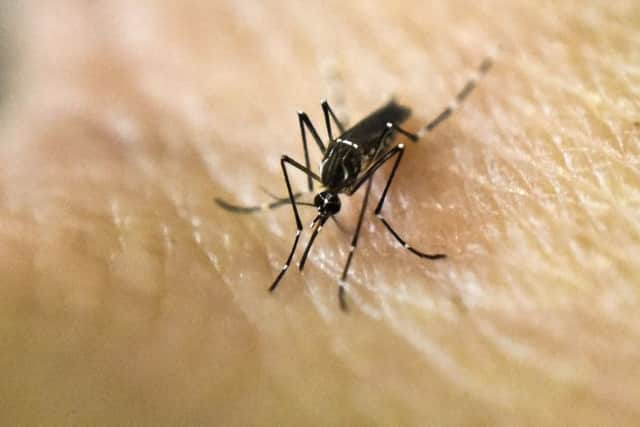Scientists find way to block transmission of mosquito viruses


Scientists at a Scottish university have uncovered a bacterial strain which blocks dengue and Zika virus transmission from mosquitoes.
In the new study, the experts show that a novel strain of the inherited bacteria Wolbachia strongly blocks transmission of dengue and Zika virus among infected mosquitoes, offering a potential alternative to strains already being tested as virus control tools.
Advertisement
Hide AdAdvertisement
Hide AdScientists from the University of Glasgow’s MRC Centre for Virus Research (CVR) have carried out the research in the mosquito species Aedes aegypti, which spreads a number of dangerous human viruses, including dengue, Zika, and Chikungunya.
Around five people in Scotland are believed to have been diagnosed with Zika, which sparked a major health alert in some South American countries recently, including Brazil at the time of the 2016 Rio Olympics. It can cause birth defects if pregnant women become infected.
Previous research has shown that transmission of these viruses among mosquitoes is inhibited if the flies are deliberately infected with one strain of Wolbachia bacteria, and several countries are testing whether infecting local mosquito populations with Wolbachia could lower rates of viral disease in humans.
Now University of Glasgow CVR scientists have shown that a novel strain “wAu” is even more effective for virus transmission blocking than strains currently being used, particularly in hot, tropical climates where there is high prevalence of these diseases.
Professor Steven Sinkins said: “The Wolbachia transmission blocking strategy shows great promise for the control of mosquito-borne viruses, and is now starting to be deployed on a large scale in a number of tropical countries. Our results with the wAu strain showed by far the effective transmission blocking for all the viruses we tested, and it provides an exciting new option to explore for disease control programmes.”
Future research could explore strategies to maximise the effectiveness of wAu in the field, such as combining it with a second strain to help it spread throughout local mosquito populations.
Prof Sinkins holds a Global Challenges Research Fund grant, which is jointly awarded by the Biotechnology and Biological Sciences and Medical Research councils. With the funding, he will lead a global network studying vector-borne diseases, such as malaria, dengue and Zika.
The research is published today in PLOS Pathogens,